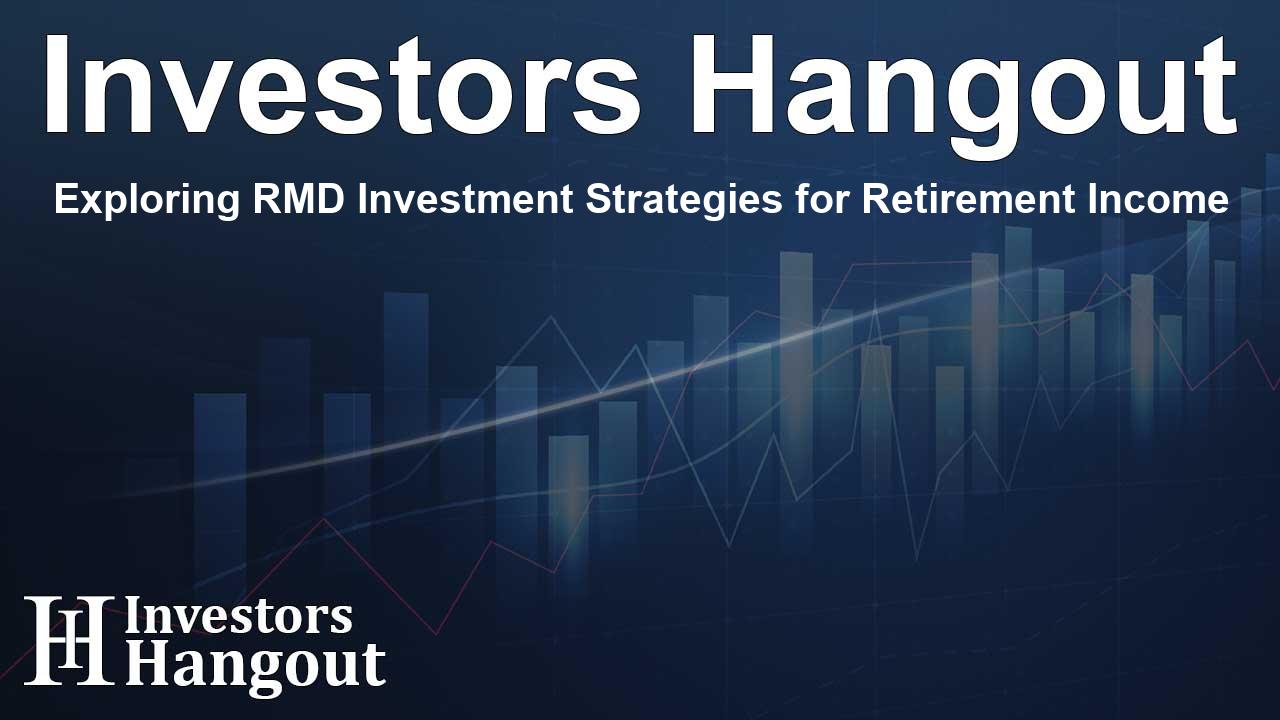Exploring RMD Investment Strategies for Retirement Income

Understanding Your RMD Options
Required Minimum Distributions (RMDs) can be a key consideration for retirees, particularly when it comes to managing your investments. Many individuals wonder how to maximize their RMDs effectively. It is possible to reinvest RMD funds back into stocks or other investment vehicles, and there's much to unpack regarding potential tax implications and benefits. In this discussion, we will explore how to navigate these decisions and the various opportunities available for your RMD income.
Can You Reinvest Your RMD?
Yes, you can reinvest your RMD funds into various investment vehicles, including stocks or bonds. The important point to remember is that the RMD amount itself won't be taxed again because it's already considered personal income for that year. Any earnings generated from your investments, however, will be taxed as they accrue, similar to any typical investment outside of retirement accounts. Hence, there is no concern for double taxation on the RMD itself.
Understanding Investment Taxation
When you reinvest your RMD money in stocks, you will receive 1099 forms for any dividends or interest generated from those investments at the end of the tax year. For excelling in the accounting of your investments, it's essential to keep track of your basis, which is the total amount you paid to acquire the stock. When you sell your investments, only the profit above your basis is taxable.
Exploring Other Investment Avenues
Besides reinvesting your money in stocks, there are other investment avenues to consider for your RMD. Some retirees might prefer rental real estate, which not only generates additional income but also allows for various tax deductions on expenses like repairs, property taxes, and mortgage interest. Real estate investment can sometimes be more advantageous than traditional stock investments due to these tax benefits.
Real Estate Investments
Investing in real estate can be approached in multiple ways. You could opt for direct ownership of rental properties or consider investing in Real Estate Investment Trusts (REITs), which allow you to hold shares in a collection of properties without the hassles of direct management. This method provides the advantages of real estate without needing significant capital upfront, making it accessible to a broader range of investors.
Why Consult a Financial Advisor?
Engaging with a financial advisor can be invaluable when deciding the best path with your RMD funds. A professional can help you assess your current financial situation, evaluate the performance of your investments, and develop a tailored strategy to meet your unique retirement goals. Consider this a step to ensure your financial future remains secure and promising.
Choosing the Right Financial Advisor
When searching for the right financial advisor, start by identifying your specific financial needs and long-term goals. Whether you are looking for help with selecting investments, tax planning, or comprehensive financial management, specialized advisement can ensure that your RMD and other funds are working effectively for you.
Strategies to Optimize Your Investments
Investing your RMD can enhance your retirement income streams significantly. Begin by reviewing your overall investment portfolio to determine how best to use your RMD funds to your advantage. Consider the timing of your investments as your personal time horizon, which can greatly influence the returns you will receive.
Conclusion
In conclusion, reinvesting your RMD can lead to additional growth and income throughout your retirement years. By clearly assessing your options—whether it be reinvesting in the stock market, delving into real estate, or collaborating with a financial advisor—you can make informed decisions to optimize your financial standings. Remember, careful planning is the key to a secure and prosperous retirement.
Frequently Asked Questions
What are RMDs?
Required Minimum Distributions (RMDs) are mandatory withdrawals that must be taken from pre-tax retirement accounts once you reach a certain age.
Can I reinvest my RMD in stocks?
Yes, you can reinvest your RMD in stocks or other investment vehicles without incurring double taxation on the initial amount withdrawn.
Are there tax implications when reinvesting my RMD?
While the RMD itself is taxable income, any earnings generated from reinvesting will also be subject to taxes, similar to normal investment income.
What are the benefits of investing in real estate?
Investing in real estate can provide rental income, tax deductions, and potential appreciation over time, which can be beneficial for your overall financial strategy.
Why should I consult a financial advisor?
A financial advisor can offer personalized advice, helping you navigate your investment options and ensuring that you meet your retirement goals efficiently.
About Investors Hangout
Investors Hangout is a leading online stock forum for financial discussion and learning, offering a wide range of free tools and resources. It draws in traders of all levels, who exchange market knowledge, investigate trading tactics, and keep an eye on industry developments in real time. Featuring financial articles, stock message boards, quotes, charts, company profiles, and live news updates. Through cooperative learning and a wealth of informational resources, it helps users from novices creating their first portfolios to experts honing their techniques. Join Investors Hangout today: https://investorshangout.com/
Disclaimer: The content of this article is solely for general informational purposes only; it does not represent legal, financial, or investment advice. Investors Hangout does not offer financial advice; the author is not a licensed financial advisor. Consult a qualified advisor before making any financial or investment decisions based on this article. The author's interpretation of publicly available data shapes the opinions presented here; as a result, they should not be taken as advice to purchase, sell, or hold any securities mentioned or any other investments. The author does not guarantee the accuracy, completeness, or timeliness of any material, providing it "as is." Information and market conditions may change; past performance is not indicative of future outcomes. If any of the material offered here is inaccurate, please contact us for corrections.